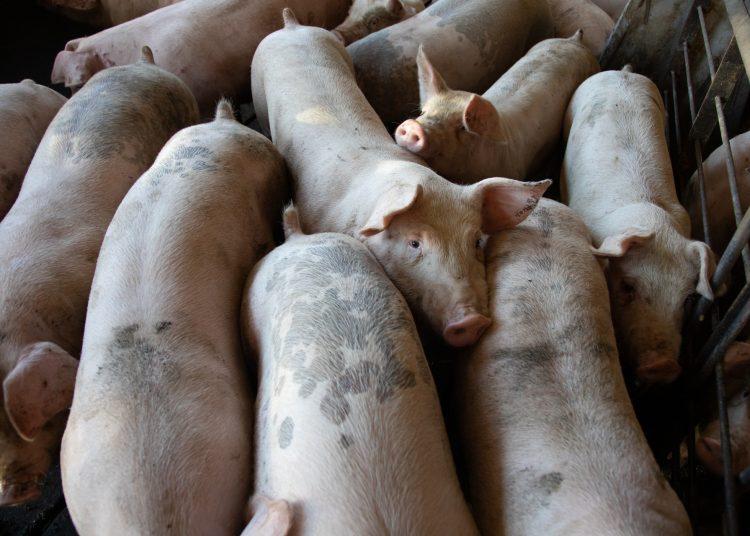(The Center Square) – Twenty Iowa House Democrats, led by State Rep. Art Staed, D-Cedar Rapids, introduced Wednesday a fifth-round bill to stop expansion of confinement feeding operation structures.
This time, the bill includes provisions protecting contract growers from liability for pollution, holding corporate integrators jointly responsible for water pollution at “factory farms” and expanding the Iowa Department of Natural Resources’ regulatory authority, bill advocate Food and Water Watch said in a news release.
Food and Water Watch hosted a news conference Monday about the bill, which would increase the responsibilities of confinement feeding operation integrators, which are meat or poultry processors that own animals contract producers maintain at confinement feeding operations.
“More than 3,000 Iowa farmers raise livestock under production contracts, and they should not have to shoulder the full burden for mistakes caused by policies given to them by massive agribusinesses,” Staed said.
Staed is ranking member on the Iowa House Economic Growth committee and a member of the environmental protection committee, which he was a ranking member of in 2021.
Under the bill, if contract producers and confinement operation integrators jointly owned confinement feeding operations, the two parties must jointly submit manure management plans and applications for confinement feeding operations. Production contracts for confinement feeding operations would be part of manure management plans, which would state who owns animals maintained at the operation.
The Iowa Department of Natural Resources would gain more authority to regulate water pollution at for confinement feeding operations through allowing the department to adopt rules more stringent than those of the Water Pollution Control Act. New structures that are part of a small animal feeding operation (up to 500 animal units) and projects already under construction would be exempt from the moratorium, which would expire in July 2027.
Iowa Alliance for Responsible Agriculture and Food & Water Watch Senior Iowa Organizer John Aspray said at the conference that manure from factory farms is being overapplied, overwhelming soil and crops, and running into Iowa waterways.
“Large agribusinesses like Tyson and Iowa Select have built this system over years to squeeze as much profit out of every part of the meat production process as possible,” Aspray said.
He said raising livestock itself is the hardest part of the business for integrators and they contract with growers, who must follow the integrators’ specifications, which may include rules for confinement and feeding of animals. Growers finance the construction and the waste and its pollution, and companies pay based on pounds of livestock delivered, he said.
“For too long, the weight of that pollution burden has fallen on the contract farmers trapped within our industrialized agricultural system while the profits have gone to large corporations, these meat integrators,” Aspray said. “The 2022 CAFO Moratorium Bill will put an end to factory farm expansion and to this glaring inequity, making sure the companies from JBS to Tyson, whose profit-hoarding creates this pollution, can be held responsible for its cleanup.”
Tyson Foods Enterprise Communications Senior Manager Fresh Meats Liz Croston told The Center Square in an emailed statement Monday that the company doesn’t tend to comment on pending legislation.
“Also, we don’t raise hogs in Iowa,” Croston said.
Iowa Cattlemen’s Association Director of Communications Anna Hastert told The Center Square in an emailed statement Tuesday that the association declines to comment.
Iowa Department of Natural Resources Communication, Outreach and Marketing Bureau Chief Tammie Krausman told The Center Square in an emailed statement Wednesday that the department does not comment on proposed legislation.















